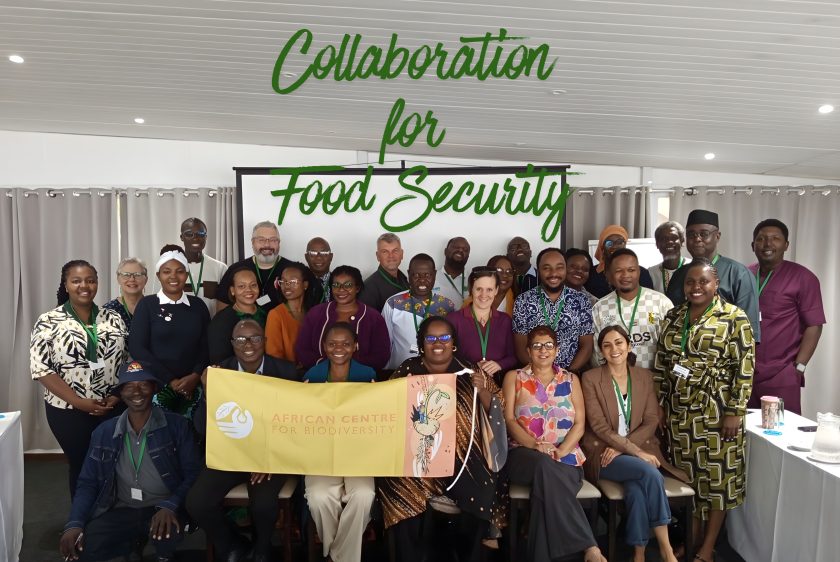
Namibia Engages in African Dialogue on Genome Editing for Sustainable Agriculture
NNF was honoured to send a delegation to the information sharing workshop on genome editing, hosted by the African Centre for Biodiversity in Durban from 23-25 September. Together with a representative of the Ministry of Agriculture, Water, Fisheries and Land Reform (MAWFLR), Mareike Voigts, Programmatic Lead of NNF, represented Namibia among participants from Malawi, Zimbabwe, Zambia, Kenya, Tanzania, Nigeria, South Africa, Ghana and Senegal.
The workshop offered a vital forum to explore the current status, regulation, risk assessment and governance challenges of genome editing techniques across Africa. Genome editing, powerful tools such as CRISPR/Cas systems, enable precise changes to the DNA of plants and animals by inserting, deleting or modifying targeted genes without necessarily introducing foreign genetic material. This precision makes genome editing a frontrunner technology for sustainable agriculture: boosting yields, improving quality, reducing reliance on pesticides and fertilisers and building resilience to climate change.
For Namibia, participation was particularly timely. Our delegates engaged with peers from across Africa and exchanged insights around regulatory frameworks, public acceptance, technical capacity-building and ethical considerations. The opportunity to compare national approaches, emerging policies, biosafety regulations and frameworks for innovation highlighted the importance of collaboration and shared learning.
Moreover, the workshop reinforced that genome editing is not just about high-tech crops; it is about enhancing the resilience of our agricultural systems, safeguarding biodiversity and supporting local communities. By attending, NNF continues its commitment to fostering informed conversations in Namibia around science, conservation and sustainable development.
As Africa advances toward food-secure futures, NNF is proud to represent Namibia in playing its part in the dialogue on genome editing, ensuring that technology is used responsibly, equitably and in support of our unique ecosystems and farming landscapes.



